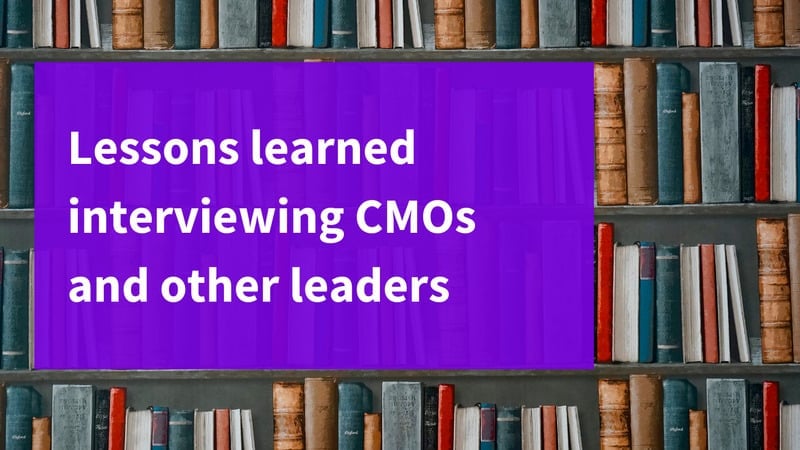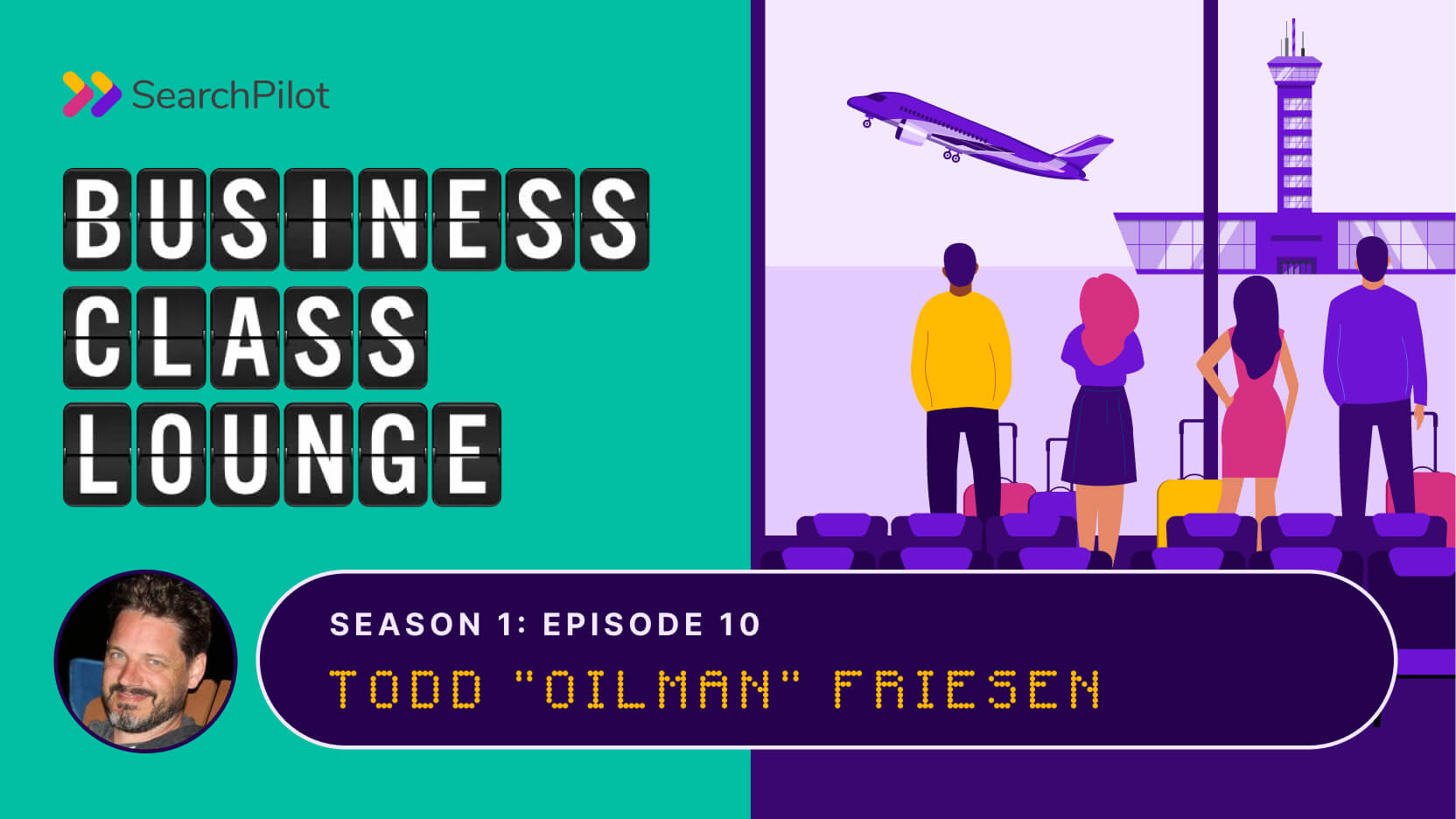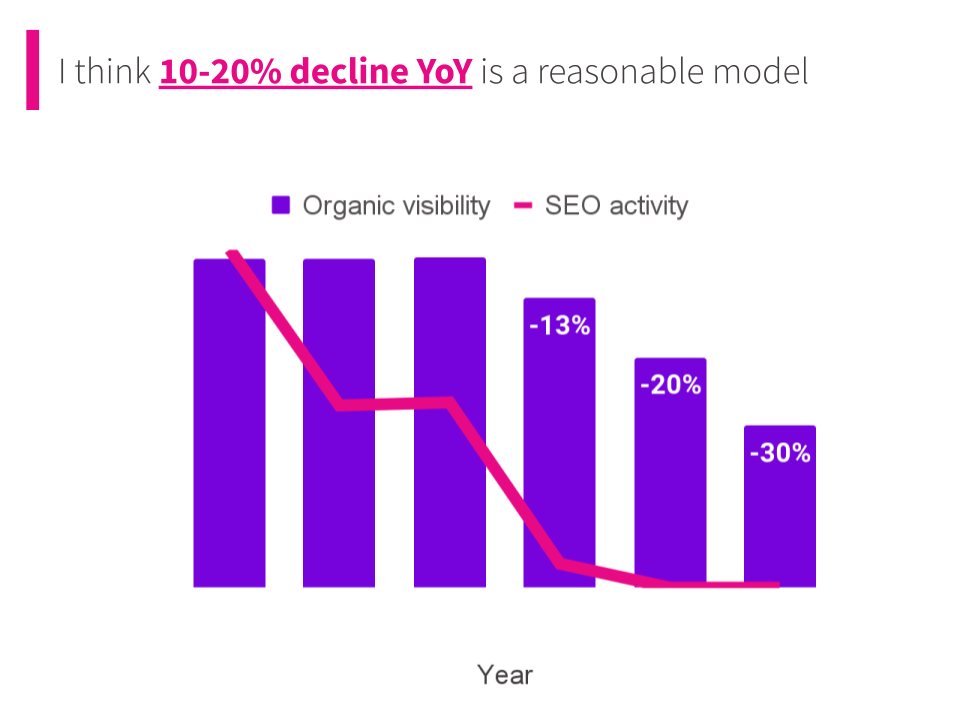I hope you’ve enjoyed the first five episodes of season 1 of my podcast, The Business Class Lounge. If you missed any of them, you can catch them here or wherever you get your podcasts from.
One of the things I was most excited about getting out of starting this podcast was my own new learning opportunities. By getting to quiz expert leaders on things I’m interested in, I figured I would get to learn new things, get new perspectives and be pushed to think about concepts in new ways. I’ve now interviewed all of my guests for season 1 and wanted to share some of the lessons that stood out for me so far. Some of these are from the first five episodes and some are from episodes that will be released later (depending on when you’re reading this post).
Many companies should invest more than they do in refreshing existing content
This was a theme that came out in two interviews - both with Zapier’s CMO (formerly SVP of Marketing at Hubspot) Kieran Flanagan and Wise’s CMO Cian Weeresinghe.
Kieran talked about how HubSpot “[does] more updates than net new posts, which people probably don’t realize” and Cian described a kind of depreciation model for content they maintain that keeps track of a form of “asset value” at a page level capturing:
- How much benefit that page has generated
- How that performance has improved or decayed over time
- Whether there is likely to be significant incremental value in improving that page
These conversations, with two very smart marketers, leading some of the best teams I’ve come across, led me to think that most teams are probably underinvesting in content refreshing and improvement, and likely are not expending enough thought and energy on tracking the performance of their existing content and trends in that performance.
You can check out their episode transcripts (Ep1: Kieran Flangan and Ep3: Cian Weeresinghe).
There’s huge benefit to having finance own a metric that lets you evaluate project performance and pitch new initiatives
When speaking to Jes Scholz, Group CMO at Ringier, I asked about how she evaluates new pitches and how she thinks about the performance of ongoing projects and she mentioned an internally-reported metric that made my ears prick up: revenue per session.
That has meant that she is able to make cases like:
“If we get indexed faster, then we’re gonna be able to generate this many more sessions. … With this revenue per session [we will get this] additional uplift from the tool.”
I immediately wondered how that “revenue per session” metric was treated through the business, and how “believed and believable” it was. Jes’ answer to that was really powerful:
“The joy of it is the revenue per session number comes from finance.”
This made me realise that more teams could benefit from starting with finance owning the definition and communication of a key metric that sits at the crux of how your business operates and makes money. By ensuring that this is believable and believed throughout the org, you can take its value as read and build your business cases and project performance evaluations on top of that number.
As she says, this relies on a strong finance team:
“I have to give kudos to our finance team that they can provide those numbers. It’s not something that I would be able to leverage if we didn’t have a competent finance team who’s gone to the level of [understanding] what is actually a KPI for our business and making sure we’re reporting that KPI.”
There is a really strong benefit to building cases off finance-provided numbers because not only are they trusted and believed throughout the business, but they are typically very close to the executive decision-makers and so you naturally end up speaking the language of the C-suite.
You’ll find Jes Scholz’s episode transcript here.
Managers can and should challenge received wisdom
My conversation with Brian Hale, VP, Growth at DoorDash (and formerly a VP at Facebook / Meta) went down some serious management and leadership rabbit holes. It’s going to be one of the last episodes in the season, so you’ll have to wait to hear it in its entirety, but there were a few unconventional pieces of advice he gave that have really stuck with me since we spoke:
1. Encourage your team to over correct on the path to personal development
“Try making the other mistake. Until you’ve gone too far, you won’t know where the middle is”
This is a piece of personal development advice that Brian credits to another VP at Facebook / Meta, Mark Rabkin. Brian was recounting some of the best personal development advice he had been given. He had heard repeatedly over the years that he could be “too nice” (in a very Canadian way) and would be more effective if he could find a way to be more assertive and direct. It landed best when he was encouraged to make “the other mistake”. When his manager later heard feedback that he had been too blunt (actually in a conversation where his manager assessed he was in the right!), the manager celebrated, and helped Brian see the good that came from the conversation despite the negative feedback. Since then, Brian has recounted that he has found it easier to get the balance right between nice phrasing, being a supportive colleague, and ensuring his perspective is heard and acted upon.
2. You might benefit from staying in a job longer than the received wisdom suggests
Brian acknowledged that his own personality has this come naturally: “I’m … very dogged about things… I just stick with things for a really long time.” (Me too! Brian was at Facebook / Meta for over a decade and I last interviewed for a job in 2003. And Kieran was at Hubspot for 10 years.)
Having said that, the reasoning made perfect sense:
- You can accumulate a lot of value over time by thinking about approaches that compound
- You get to know how the company ticks and how everything works so you can become much more valuable
- There is a huge switching cost during which you are working to get ramped up, and if you do that too often, you damage your long-run impact
Now, obviously Brian joined Facebook in the early days, so this rhymes with Sheryl Sandberg’s famous saying “If you’re offered a seat on a rocket ship, don’t ask what seat. Just get on.” and so we dug into it a bit to let me quiz him on when it does and doesn’t apply. Brian’s view was that you should seek to stick around in one place if “you’re at a company that’s actually growing pretty fast and has a long runway and you’re good at what you do, and you’re in a spot where your manager and their manager also know about you and know about your work.”
Brian Hale’s episode will be released in a few weeks. You can catch the earlier episodes (1-5) of The Business Class Lounge now or subscribe to the podcast channel to be the first to get in to Brian’s epsiode when it’s out.
Want more?
There’s tons more of these kinds of lessons in each of the episodes from The Business Class Lounge, subscribe wherever you get your podcasts. I’d love to hear your thoughts too - what were your key takeaways? DM me on Twitter or LinkedIn. If you’re a CMO, SVP/VP/Director of Marketing and wouldn’t mind sharing your insights and experiences with me and be my guest on the next season, email me on podcast@searchpilot.com.



